Determining the best golfer of all time can be a challenging task, as it requires comparing players from different eras and taking into account various factors such as professional majors, tour victories, and worldwide wins. Modern-era golfers who competed in highly competitive tournaments on challenging courses should be given higher standing than historic gentlemen. With that in mind, here is a list of the top 10 greatest golfers of all time.
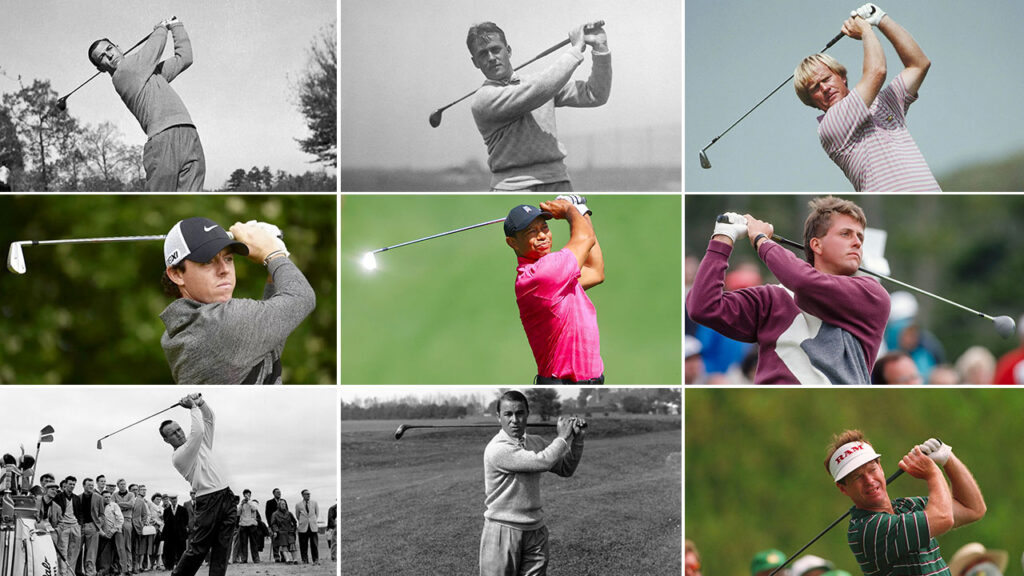
Top 10 greatest golfers of all time
Summary:
- Tiger Woods: Dominating the Game with 15 Major Championships and 82 PGA Tour Victories
- Jack Nicklaus: Setting the Standard for Greatness with 18 Major Championships and 73 PGA Tour Victories
- Sam Snead: A Legend with 82 PGA Tour Victories and Ability to Win in Different Decades
- Arnold Palmer: Revolutionizing the Game and Leaving an Immeasurable Impact with 7 Major Championships
- Ben Hogan: Precision and Ball Control Defined Hogan’s Game with 9 Major Championships
- Bobby Jones: A Golden Age Superstar with 13 Major Championships Before Retirement at 28
- Tom Watson: Dominance in the British Open and Memorable Duels with Nicklaus
- Gary Player: A Global Ambassador for Golf with 9 Major Championships and Over 150 Worldwide Victories
- Gene Sarazen: Achieving the Career Grand Slam and Revolutionizing the Game with the Sand Wedge
- Phil Mickelson: 45 PGA Tour Victories and 6 Major Championships Secure His Position Among the Greats
1. Tiger Woods: The Dominant Force

Tiger Woods is widely regarded as one of the greatest golfers of all time. His dominance in the late 1990s and early 2000s changed the face of the game. With 15 major championships and 82 PGA Tour victories, Woods has left an indelible mark on the sport. His impact on the game is undeniable, and his recent major win puts him in contention for the all-time record.
Woods’ ability to perform under pressure, his superior driving distance, and his precision with iron shots make him a force to be reckoned with on the golf course. He has displayed incredible consistency throughout his career and has the mental fortitude to overcome adversity.
2. Jack Nicklaus: The Golden Bear
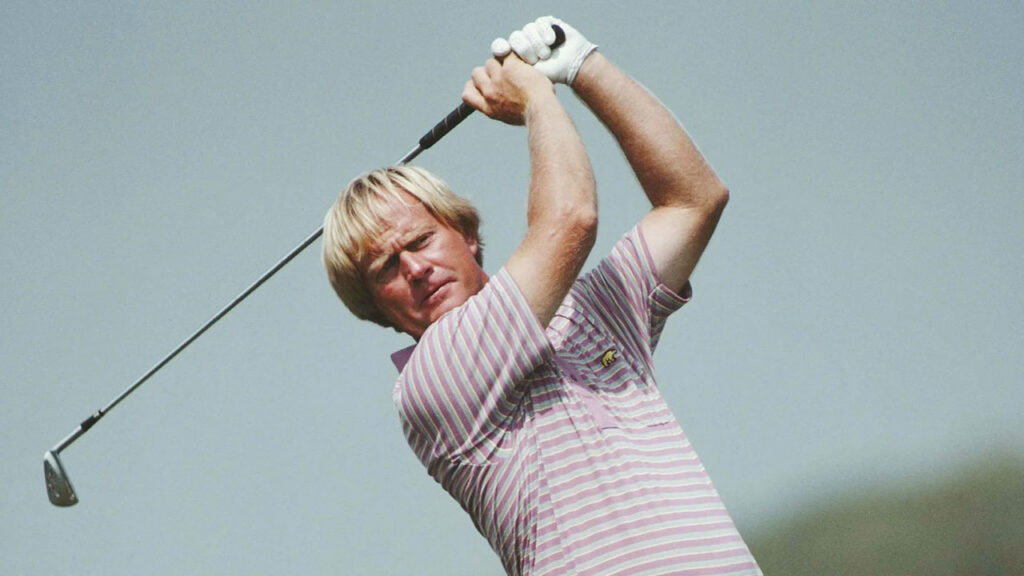
Jack Nicklaus is often considered the greatest golfer of all time due to his record 18 major championships and 73 PGA Tour victories. Nicklaus consistently performed at the highest level and set the standard for greatness. His longevity and ability to contend in major championships well into his 40s are a testament to his skill and dedication.
Nicklaus possessed a powerful swing and exceptional accuracy, enabling him to dominate the golf course. His mental toughness and ability to handle pressure situations set him apart from his competitors. Nicklaus’ success on the PGA Tour and his continued impact on the game after his retirement make him a true legend.
3. Sam Snead: A Legend of the Game
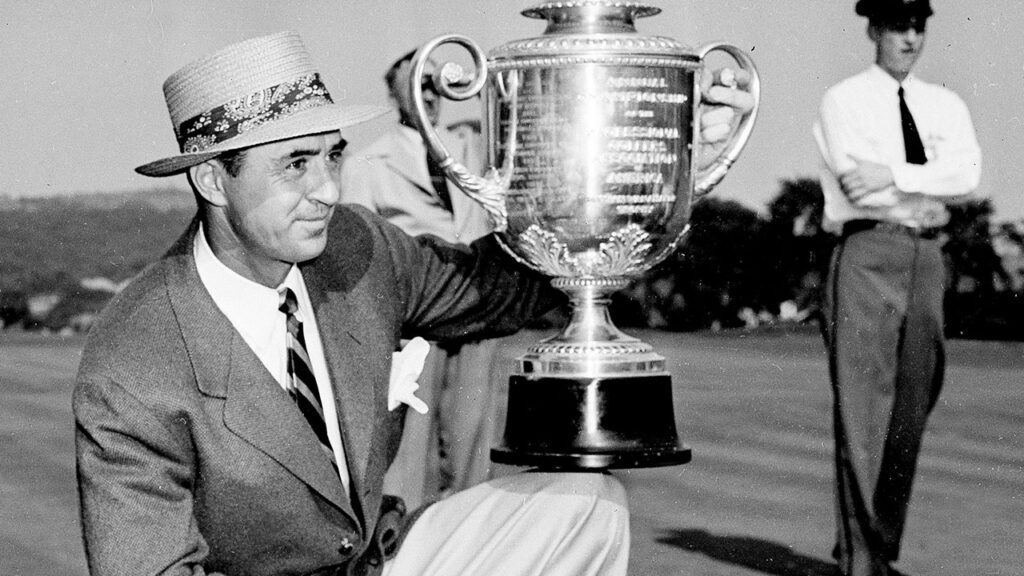
Sam Snead’s record-breaking 82 PGA Tour victories make him one of the most successful golfers in history. Snead’s ability to win tournaments in different decades showcases his longevity and skill. Despite never winning a U.S. Open, his accomplishments cannot be overlooked.
Snead was known for his graceful swing and powerful drive, which allowed him to hit the ball with precision. His ability to control the flight and trajectory of the ball gave him a significant advantage on the golf course. Snead’s impact on the game and his lasting legacy cement his place among the greatest.
4. Arnold Palmer: The King of Golf
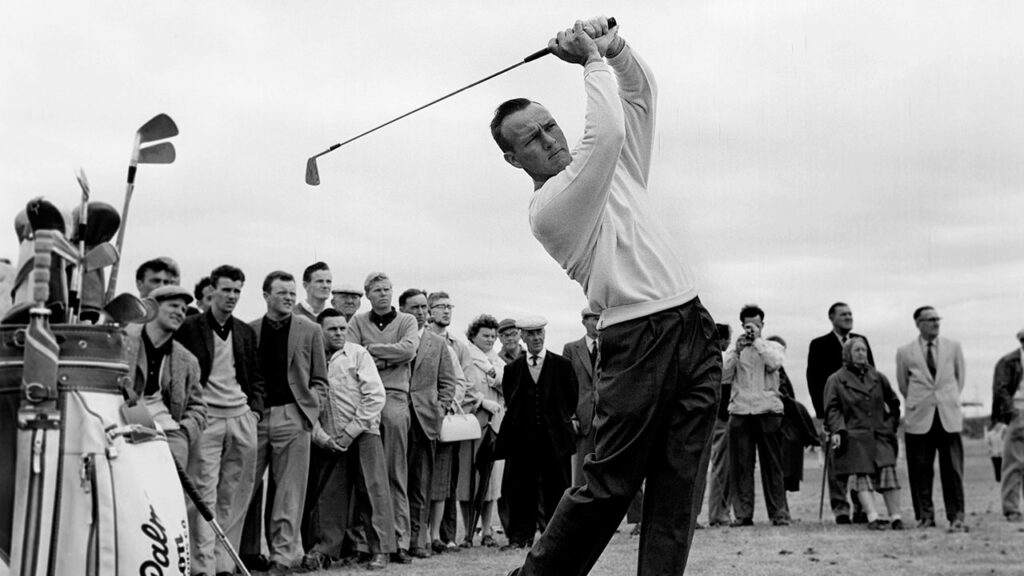
Arnold Palmer revolutionized the game of golf and made it accessible to a wider audience. His charisma and personal style brought golf to the masses, making it a popular spectator sport. With seven major championships, including four Masters victories, Palmer’s impact on the sport is immeasurable.
Palmer’s aggressive playing style and go-for-broke mentality endeared him to fans around the world. Known as “The King,” he displayed a never-give-up attitude and a flair for the dramatic. Palmer’s contributions to the game and his philanthropic endeavors have left a lasting impact on golf.
5. Ben Hogan: The Precision Shotmaker
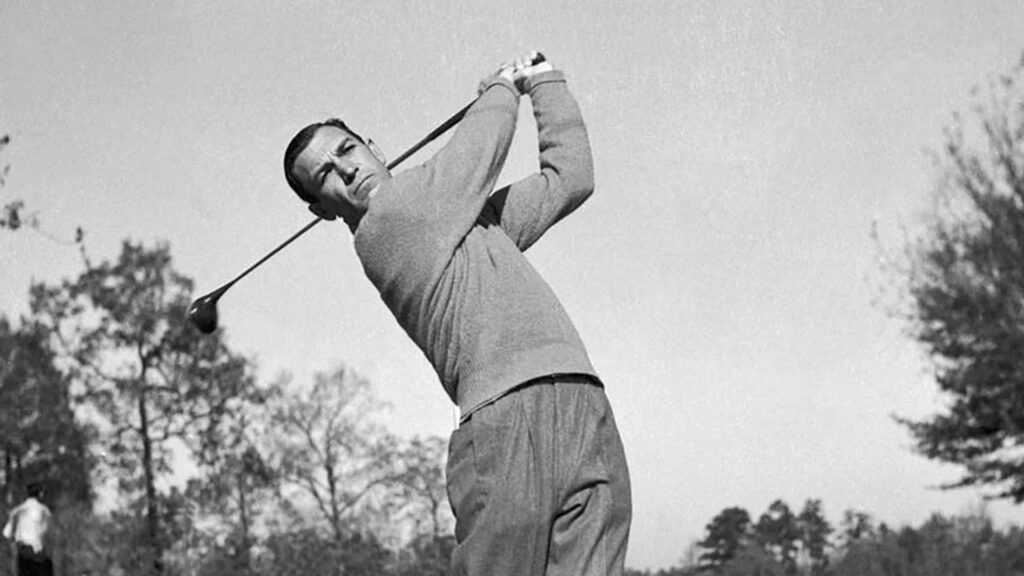
Ben Hogan is widely regarded as one of the greatest shotmakers in the history of golf. His focus on precision and ball control allowed him to consistently hit accurate shots under pressure. With nine major championships, including a streak of three in one year, Hogan left an indelible mark on the game.
Hogan’s commitment to improving his swing and his meticulous attention to detail set him apart from his competitors. His ability to shape shots and navigate difficult courses earned him the nickname “The Hawk.” Hogan’s influence on the game can still be seen today, as many professionals strive to emulate his swing.
6. Bobby Jones: The Golden Age Champion
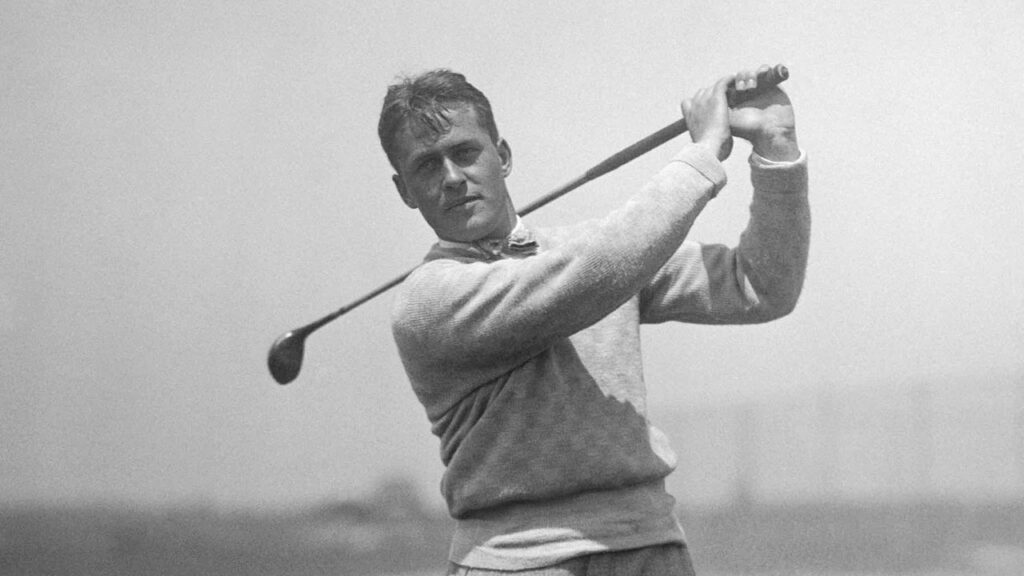
Bobby Jones achieved immense success during the Golden Age of sports. Winning 13 major championships before retiring at the age of 28, Jones left a lasting legacy in the game of golf. His crowning achievement was the Grand Slam he completed in 1930, winning all four major championships in a calendar year.
Jones was known for his exceptional golfing skills and his gentlemanly demeanor on and off the course. He is widely respected for his sportsmanship and his contributions to the game, including the founding of the Masters Tournament. Jones’ impact on the sport has made him a timeless symbol of excellence.
7. Tom Watson: The British Open Dominator

Tom Watson was a dominant force in the British Open, winning it five times. His ability to excel on links-style courses and battle adverse weather conditions showcased his skill and resilience. Watson’s memorable duels with Jack Nicklaus and his two Masters victories solidify his place among the best.
Watson’s exceptional short game and his ability to consistently make putts under pressure set him apart from his competitors. His clutch performances in major championships are legendary, and his influence on the game continues to be felt. Watson’s competitive spirit and unwavering determination make him a true golfing great.
8. Gary Player: The International Ambassador

Gary Player is considered one of the best international ambassadors for golf. With nine major championships and over 150 tournament victories worldwide, Player’s impact on the game is undeniable. His success on multiple continents and his dedication to promoting the sport globally have made him a true legend.
Player’s fitness regimen and disciplined approach to the game set him apart from his competitors. Despite being relatively small in stature, he was able to generate impressive power and accuracy. Player’s contributions to golf and his commitment to philanthropy make him an inspiration both on and off the course.
9. Gene Sarazen: The Innovator
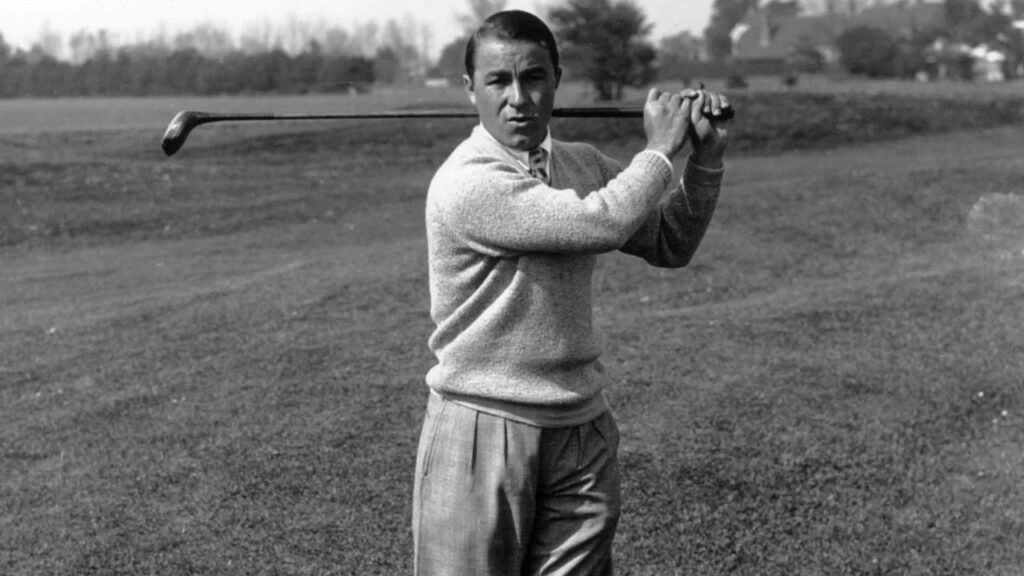
Gene Sarazen achieved the Career Grand Slam, winning all four major championships in his career. His invention of the sand wedge revolutionized the way the game is played and transformed the short game for golfers worldwide. Sarazen’s contributions to the sport make him one of the greatest of all time.
Sarazen’s ability to escape from greenside bunkers with his new club design gave him a significant advantage over his competitors. His innovative thinking and dedication to improving his game set him apart. Sarazen’s impact on the game of golf cannot be overstated, as his invention changed the way players approach bunker shots.
10. Phil Mickelson: The Modern Contender

Phil Mickelson’s impressive career includes 45 PGA Tour victories and six major championships, including three victories at the Masters. Mickelson’s unique left-handed swing and his ability to hit spectacular shots from difficult positions have endeared him to fans worldwide. His short game and creativity on the course set him apart from his competitors.
Mickelson’s willingness to take risks and play with flair make him one of the most exciting golfers to watch. His victories in major championships and his consistent success on the PGA Tour secure his position among the top golfers of all time. Mickelson continues to compete at a high level, adding to his already impressive legacy.
Conclusion
Determining the best golfer of all time is a subjective task, as different eras and playing conditions must be taken into account. The top 10 greatest golfers in history, including Tiger Woods, Jack Nicklaus, Sam Snead, Arnold Palmer, Ben Hogan, Bobby Jones, Tom Watson, Gary Player, Gene Sarazen, and Phil Mickelson, have each made significant contributions to the game.
While these rankings provide a framework for evaluating greatness, it is important to recognize that there are many other players who have left their mark on the sport. Golf’s rich history is filled with remarkable individuals who have showcased their skills and passion for the game. As the sport continues to evolve, future generations of golfers will undoubtedly have their names added to the list of the greatest in history.
History of golf
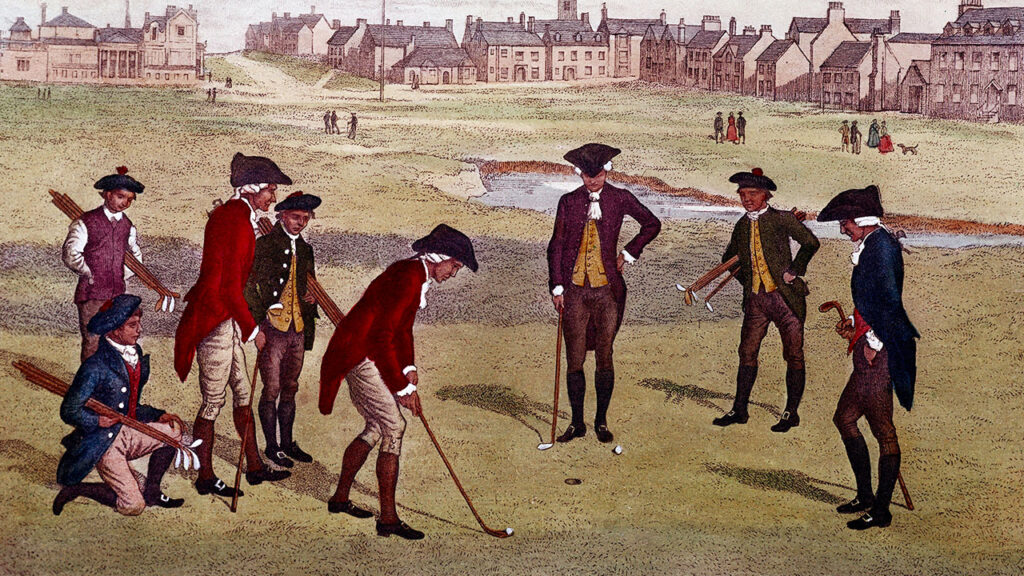
The history of golf is a fascinating journey that spans centuries and continents. Here’s an overview of its evolution:
15th Century:
The origins of golf are believed to date back to 15th-century Scotland. Early forms of the game were played on rough terrains and involved hitting a ball into a hole using a wooden stick or club.
17th Century:
Golf gained popularity in Scotland, and the first recorded mention of golf in an official document occurred in 1457 when King James II of Scotland banned the game to focus on archery practice.
The game continued to be played, and the Royal and Ancient Golf Club of St Andrews, one of the oldest golf clubs in the world, was founded in 1754.
18th Century:
Golf began to spread to other parts of the United Kingdom, and golf courses were established in England and Ireland.
The concept of 18 holes per round became more standardized during this period.
19th Century:
Golf crossed the Atlantic and found its way to North America. The Montreal Golf Club in Canada was established in 1873, and the first golf course in the United States, the Chicago Golf Club, was founded in 1893.
The rules of golf, as we know them today, started to take shape with the establishment of the R&A’s Rules of Golf in 1744 and the USGA’s formation in 1894.
20th Century:
The game continued to grow in popularity globally. The first international golf championship, the British Open, began in 1860.
Golf was included in the 1900 and 1904 Summer Olympics but was removed afterward. It was eventually reintroduced as an Olympic sport in the 2016 Rio Games.
Professional golf tournaments, like the Masters Tournament (founded in 1934) and the Ryder Cup (inaugurated in 1927), became major events in the golf calendar.
The Ladies Professional Golf Association (LPGA) was established in 1950 to promote women’s professional golf.
21st Century:
Golf continues to be a widely played and watched sport globally, with major tournaments like The Open Championship, the U.S. Open, the PGA Championship, and the Masters drawing large audiences.
The game has seen technological advancements in equipment and course design, influencing how the sport is played and experienced.
Golf has also gained popularity in regions like Asia, further expanding its global reach.
Throughout its history, golf has evolved from a simple pastime played in the Scottish countryside to a widely recognized and cherished sport played by amateurs and professionals alike. Its rich traditions, diverse courses, and competitive spirit continue to captivate players and fans around the world.


